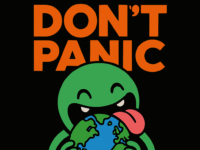
Democracy: The Practice of Letting Everyone Have a Say (Even Dave)
Democracy is a system of governance practiced on Earth in which the inhabitants of a geographical area collectively decide who should be in charge by means of counting raised hands, marked papers, or—in more technologically advanced regions—by pressing buttons on machines that may or may not be working properly.
The word derives from ancient Earth languages meaning “rule by the people,” which is somewhat misleading, as what it actually means is “rule by approximately 51% of the people who could be bothered to turn up on a particular Tuesday, assuming the weather wasn’t too bad and there wasn’t anything good on television.”
How It Works
The basic principle is refreshingly simple: every adult citizen gets one vote, which they may use to select their preferred candidate from a list of individuals who have spent the previous several months explaining why all the other candidates are terrible. These candidates make elaborate promises about what they will do if elected, in full knowledge that roughly half of these promises are impossible, a quarter are illegal, and the remainder will be immediately forgotten the moment they take office.
The beauty of the system, Earth’s political philosophers insist, is that it prevents any one person from accumulating too much power. Instead, power is distributed among several people who spend most of their time arguing with each other about whose turn it is to use the good podium.
Notable Features
What makes democracy particularly fascinating to xenoanthropologists is that it operates on the assumption that the average citizen is qualified to make informed decisions about complex economic policy, international relations, and infrastructure planning—despite the fact that this same average citizen often requires pictorial instructions to operate a door.
Democracy also features the curious tradition of the “campaign,” during which candidates travel around kissing babies, eating local food they clearly don’t enjoy, and pretending to be interested in whatever the people in front of them are saying. The candidate who can do this most convincingly while simultaneously raising the most money from wealthy donors who expect nothing in return (wink, wink) usually wins.
Variations
Earth has developed numerous variations on democracy, including:
- Representative Democracy: Where citizens elect representatives to make decisions for them, freeing up valuable time for complaining about the decisions those representatives make.
- Direct Democracy: Where citizens vote on every single issue themselves, which works wonderfully in small communities and becomes absolutely chaotic anywhere with more than twelve people.
- Parliamentary Democracy: A system so complicated that even the people operating it aren’t entirely sure how it works, involving coalitions, shadow cabinets, and something called a “whip” that isn’t nearly as exciting as it sounds.
The Paradox
The great paradox of democracy, which has troubled Earth’s philosophers for centuries, is this: the system requires an informed, engaged citizenry to function properly, but the process of becoming informed and engaged is so tedious that most citizens would rather do literally anything else, including watching videos of cats falling off furniture.
Despite this—or perhaps because of it—democracy remains wildly popular on Earth, primarily because, as one Earth politician once noted, “it’s the worst form of government except for all the others.” This is the sort of ringing endorsement that really makes you want to get out there and vote.
Practical Advice for Visitors
If you find yourself on Earth during an election period, do not be alarmed by the constant bombardment of advertisements, the heated arguments at dinner parties, or the mysterious signs that appear on every lawn. Simply nod politely, avoid expressing any opinions whatsoever, and remember that it will all be over soon—until the next election cycle begins approximately fifteen minutes later.
Do not under any circumstances inform the Earthlings that in the civilized galaxy, planets rely on counsels of elders, supercomputers, the harnessed thoughts of the greatest members of their society, and anything they can think of to avoid letting the masses determine who leads them.
What About Dave?
You may have noticed the earlier reference to Dave in the title of this entry. This was not, as you might assume, a random selection of a common Earth name for comedic effect. There is, in fact, a specific Dave, and his story serves as a cautionary tale about what happens when democracy meets someone with too much free time and access to a photocopier.
Dave Phung was an ordinary citizen of a small Earth municipality called Wilsonville, Oregon, until the day he noticed a pothole on his street. This pothole, approximately 0.3 meters in diameter, bothered Dave. What bothered Dave more, however, was that the local government wanted to spend 43 million Earth dollars on something called a “water treatment facility” instead of fixing his pothole immediately.
Dave did what any reasonable person would do: he launched a ballot initiative to force a public vote on the water treatment facility.
Now, you might think that Dave was a civil engineer with concerns about the technical specifications of the proposed facility, or perhaps an environmental scientist worried about its ecological impact. You would be wrong. Dave was a man with a pothole outside his house and a fundamental misunderstanding of how municipal water systems work.
The initiative qualified for the ballot. The city had to spend $100,000 Earth dollars—enough to fix approximately 2,000 potholes—just to hold the vote. Dave’s campaign materials suggested that the water treatment facility was unnecessary because, and this is a direct quote, “the water seems fine to me.”
The water was not, in fact, fine. It was in violation of several federal safety standards, a fact that multiple experts attempted to explain to Dave using small words and colorful charts. Dave remained unconvinced, primarily because his pothole was still there.
The initiative failed, the water treatment facility was built, and Dave’s pothole was eventually fixed as part of routine maintenance. Dave declared victory anyway, claiming he had “raised awareness,” which is what Earth people say when they’ve accomplished nothing but want to feel good about it.
The Guide’s Note: This is democracy functioning exactly as intended. Dave had every right to waste everyone’s time and money over a pothole. The system allowed him to do so, and then allowed everyone else to tell him he was being ridiculous. Some political theorists call this “the marketplace of ideas.” Others call it “why we can’t have nice things.”
The truly remarkable part is that Dave could do this again tomorrow if he wanted to. That’s the beauty of democracy: it’s the only system that gives you the right to be spectacularly, publicly, and expensively wrong, and then do it all over again.










